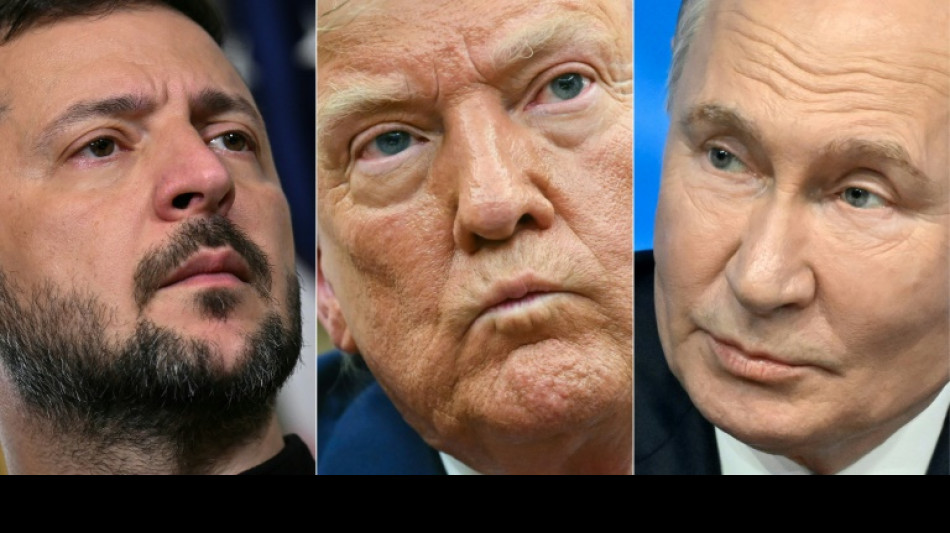
-
 South Korea to ban mobile phones in school classrooms
South Korea to ban mobile phones in school classrooms
-
Alcaraz banishes US Open demons to reach third round
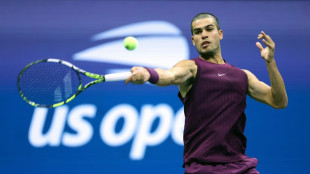
-
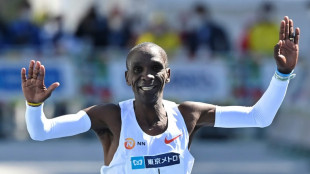 Kipchoge feeling the pressure ahead of Sydney Marathon
Kipchoge feeling the pressure ahead of Sydney Marathon
-
Clooney and Netflix team up for Venice festival spotlight
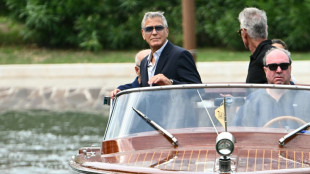
-
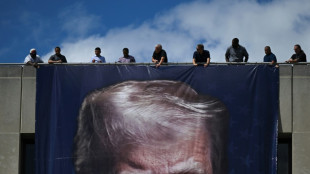 Trump stamps 'dictator chic' on Washington
Trump stamps 'dictator chic' on Washington
-
UN Security Council to decide fate of peacekeeper mandate in Lebanon

-
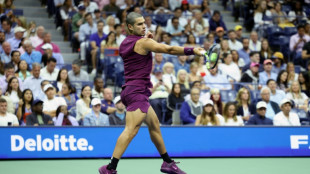 Alcaraz sprints into US Open third round as Djokovic advances
Alcaraz sprints into US Open third round as Djokovic advances
-
Qantas says profits up, strong travel demand ahead
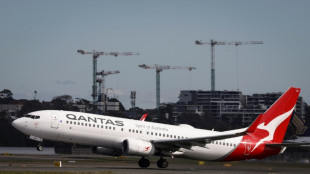
-
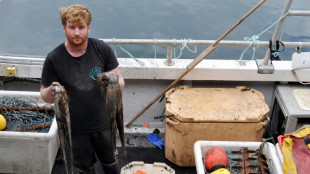 'Perfect storm': UK fishermen reel from octopus invasion
'Perfect storm': UK fishermen reel from octopus invasion
-
Alcaraz crushes Bellucci to reach US Open third round
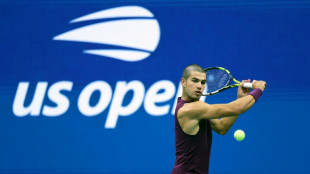
-
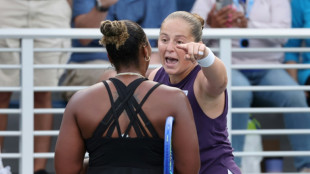 Townsend reveals Ostapenko 'no class' jibe after US Open exit
Townsend reveals Ostapenko 'no class' jibe after US Open exit
-
Israel ups pressure on Gaza City as Trump talks post-war plan

-
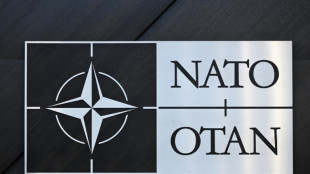 NATO says all countries to finally hit 2-percent spending goal
NATO says all countries to finally hit 2-percent spending goal
-
Rangers humiliated, Benfica deny Mourinho's Fenerbahce Champions League place

-
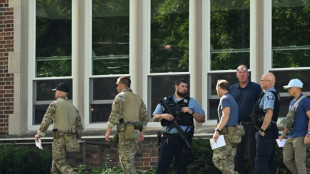 Shooter kills two children in Minneapolis church, injures 17 others
Shooter kills two children in Minneapolis church, injures 17 others
-
AI giant Nvidia beats earnings expectations but shares fall
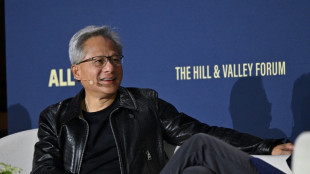
-
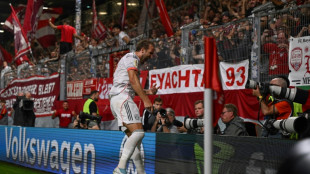 Kane rescues Bayern in German Cup first round
Kane rescues Bayern in German Cup first round
-
Argentina's Milei pelted with stones on campaign trail
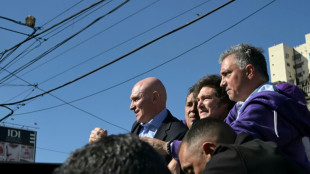
-
 Stock markets waver before Nvidia reports profits climb
Stock markets waver before Nvidia reports profits climb
-
Argentina hunts Nazi-looted painting revealed in property ad
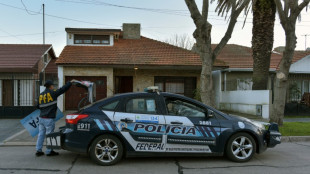
-
 NGO says starving Gaza children too weak to cry
NGO says starving Gaza children too weak to cry
-
French PM warns against snap polls to end political crisis
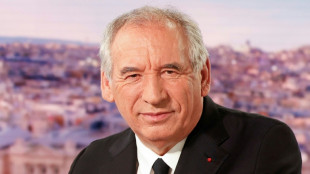
-
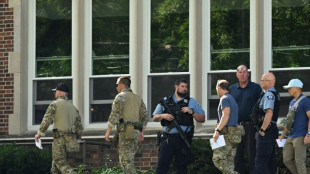 Gunman kills two children in Minneapolis church, injures 17 others
Gunman kills two children in Minneapolis church, injures 17 others
-
Djokovic advances at US Open as Sabalenka, Alcaraz step up title bids
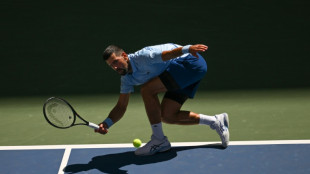
-
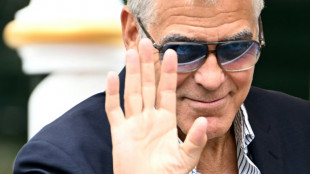 Venice Film Festival opens with star power, and Gaza protesters
Venice Film Festival opens with star power, and Gaza protesters
-
Ex-Fed chief says Trump bid to oust US governor Cook 'dangerous'
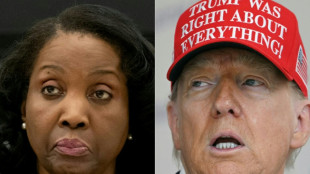
-
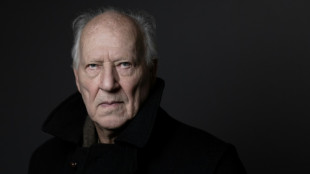 Globetrotting German director Herzog honoured at Venice festival
Globetrotting German director Herzog honoured at Venice festival
-
Djokovic fights off qualifier to make US Open third round
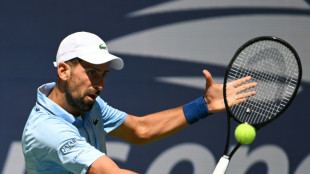
-
 Gunman kills two children in Minneapolis church, injures 17
Gunman kills two children in Minneapolis church, injures 17
-
Duplantis, Olyslagers seal Diamond League final wins

-
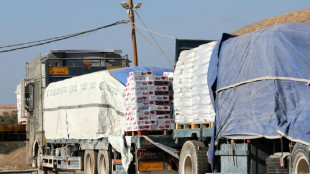 Israel demands UN-backed monitor retract Gaza famine report
Israel demands UN-backed monitor retract Gaza famine report
-
Vingegaard reclaims lead as UAE win Vuelta time trial
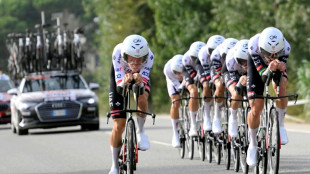
-
 Shooter kills 2 children in Minneapolis church, 17 people injured
Shooter kills 2 children in Minneapolis church, 17 people injured
-
Defence giant Rheinmetall opens mega-plant as Europe rearms
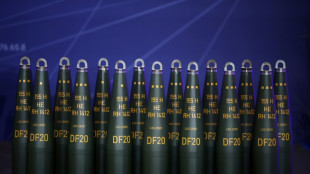
-
 Van Gogh Museum 'could close' without more help from Dutch govt
Van Gogh Museum 'could close' without more help from Dutch govt
-
Indonesia's Tjen exits US Open as Raducanu moves on
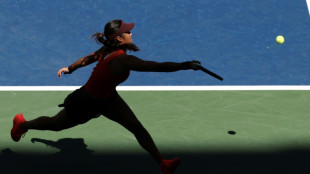
-
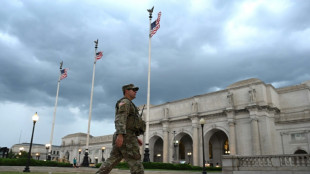 Trump administration takes control of Washington rail hub
Trump administration takes control of Washington rail hub
-
Stock markets waver ahead of Nvidia earnings

-
 Conservationists call for more data to help protect pangolins
Conservationists call for more data to help protect pangolins
-
US Ryder Cup captain Bradley won't have playing role
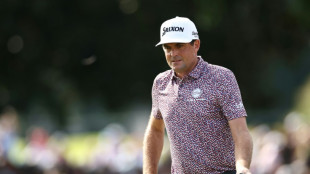
-
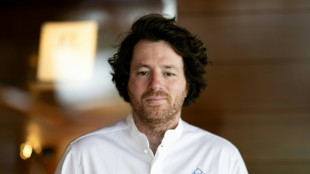 French star chef to 'step back' after domestic abuse complaint
French star chef to 'step back' after domestic abuse complaint
-
Rudiger returns, Sane dropped for Germany World Cup qualifiers
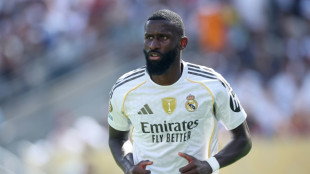
-
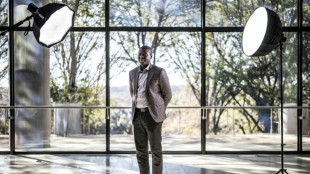 S.Africa calls US welcome for white Afrikaners 'apartheid 2.0'
S.Africa calls US welcome for white Afrikaners 'apartheid 2.0'
-
'Resident Evil' makers marvel at 'miracle' longevity

-
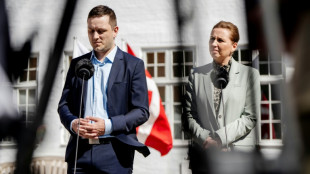 Denmark apologises for Greenland forced contraception
Denmark apologises for Greenland forced contraception
-
Hungary web users lap up footage of PM Orban's family estate
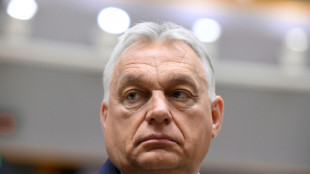
-
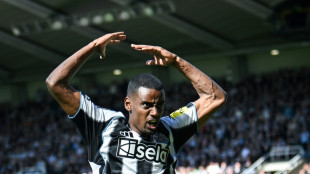 Alexander Isak selected by Sweden despite Newcastle standoff
Alexander Isak selected by Sweden despite Newcastle standoff
-
Italy's Sorrentino embraces doubt in euthanasia film at Venice
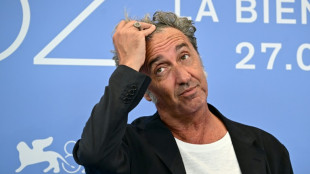
-
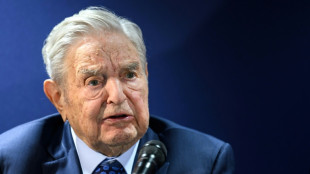 Trump urges criminal charges against George Soros, son
Trump urges criminal charges against George Soros, son
-
Wildfires pile pressure on Spanish PM
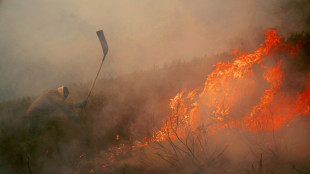

Trump's mixed signals on Russia cloud European strategy
European countries, aiming for deeper economic sanctions to push Russia into a ceasefire in Ukraine, struggle with US President Donald Trump's ambivalent attitude on the issue, analysts say.
Trump has expressed impatience -- accusing Russian President Vladimir Putin of "playing with fire" -- and made threats, but does not seem to follow them up with action, they say.
Diplomatic efforts to end the war, now in its fourth year, have intensified in recent weeks, with Putin being accused of stalling on peace talks.
The Wall Street Journal and CNN both reported that Trump was now considering fresh sanctions against Russia, while stressing that he could still change his mind.
On Wednesday, Trump expressed his frustration with Moscow, but also appeared to kick the can down the road by saying he would determine within "about two weeks" whether Putin was serious about ending the fighting.
As the EU prepares a fresh package of sanctions against Moscow, the bloc's 18th, the chances of coordinated international sanctions, flagged by French President Emmanuel Macron during a visit to Kyiv with the German, British, and Polish leaders on May 10, seem increasingly remote.
- 'Again be disappointed' -
German media reported Tuesday that recent discussions between Europeans and Americans about Russia's evasion of sanctions had failed.
"It seems that European hopes for joint action with the Americans... will once again be disappointed," said the Sueddeutsche Zeitung daily, citing an internal German foreign ministry document about an EU Foreign Affairs Council meeting in Brussels last week.
The document cites EU sanctions envoy David O'Sullivan as saying that transatlantic coordination on Russian sanctions had collapsed. Even G7 cooperation had "lost momentum," the newspaper said in its report based on the document.
Led by Paris, Berlin and London, Europeans are pitting their proactive stance against Washington's apparent passivity, said Sven Biscop, an expert at the Egmont Institute, a Belgian think tank.
When Trump announced direct negotiations with Putin without Kyiv or Brussels, and when Ukraine's future NATO entry was ruled out, "the EU indicated it would continue its process of Ukraine's accession, arm it even after a hypothetical ceasefire, maintain sanctions, and deploy reassurance forces," he noted.
"We deploy our levers but cannot force Trump to use his, or compel Putin to give up the war. We do not have that power," he said.
Phillips O'Brien, strategy expert at the University of St Andrews in Scotland, suspects that European leaders have become victims of "maybe the greatest example of political gaslighting in US foreign policy history".
Despite all Trump's posturing on imposing sanctions on Russia, "he clearly has no intention of doing so", O'Brien said.
Europeans, meanwhile, are in favour of a plan by US Senator Lindsey Graham, who has called for a "secondary" sanctions plan, including a 500-percent tariff on countries importing Russian fossil fuels and raw materials.
- 'What kind of rogue?' -
They hope that a US constitutional provision for a "discharge petition" wins the day, which would allow the sanctions bill to be adopted independently of the executive branch.
This would put Trump at arm's length from any sanctions move, allowing him to remain in a non-committal "mediation position", said a European diplomat who declined to be identified.
This stance confirms a new reality that Europeans are having to navigate: Washington now positions itself halfway between its traditional western European allies and Russia.
This could, down the road, allow Trump to wash his hands of the conflict altogether if negotiations go nowhere -- just like he did on the North Korea issue in 2019, during his first term.
"The question is no longer whether the United States will go rogue but what kind of rogue it will become," said Michael Beckley, a political scientist at the Foreign Policy Research Institute, an American think tank.
"Will it be a reckless, hypernationalist power that lashes out, cuts ties, and pursues limited gain at great long-term cost? Or can it channel its strength into a more strategic posture?", he asked.
On Friday, Macron said that Washington faces a "credibility test" over its response to Russia dragging its feet on a Ukraine ceasefire.
burs-dt-dla/jh/as
L.Hussein--SF-PST
